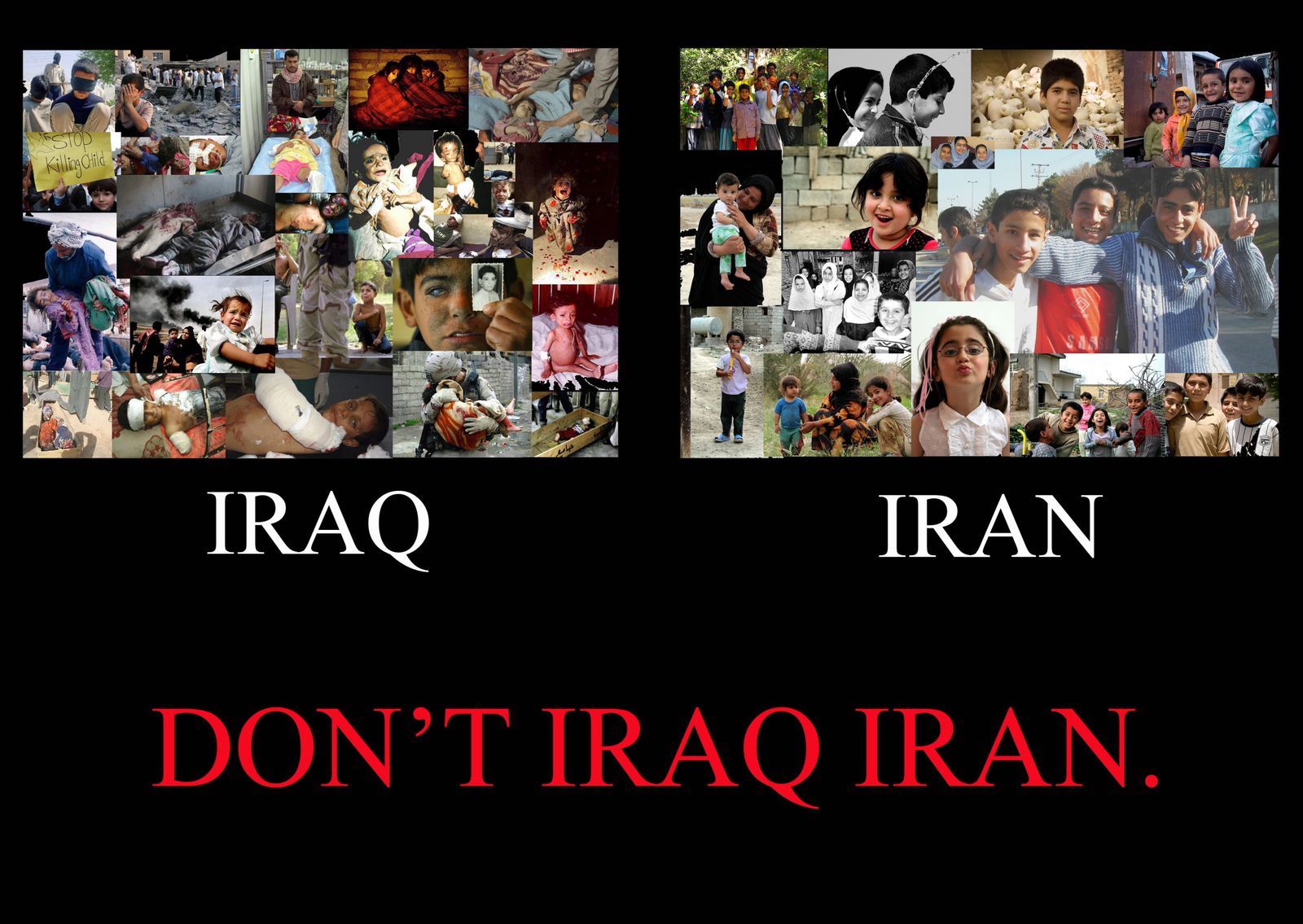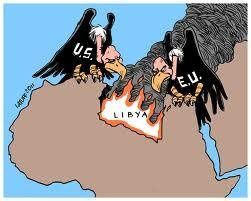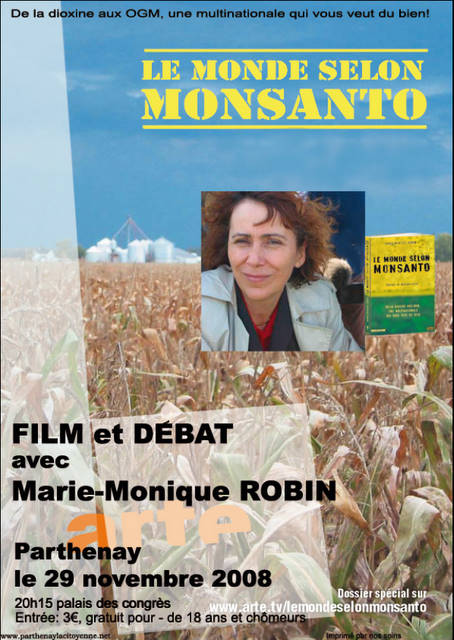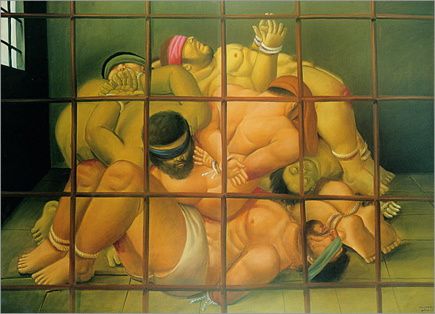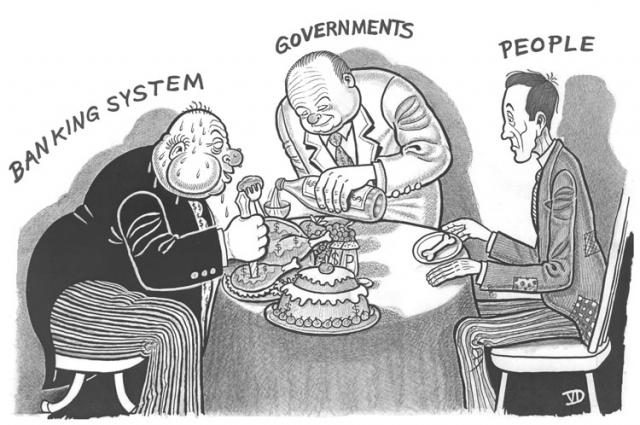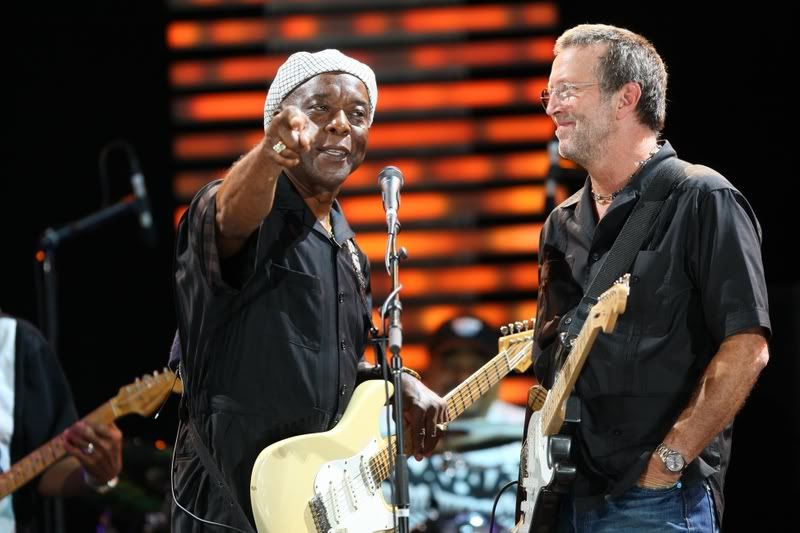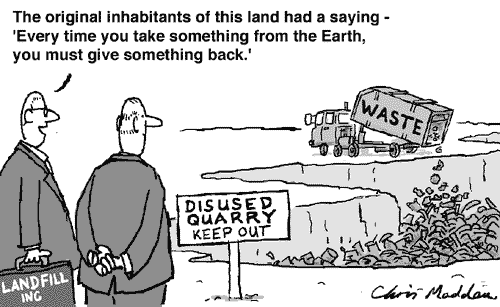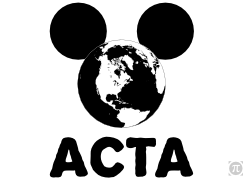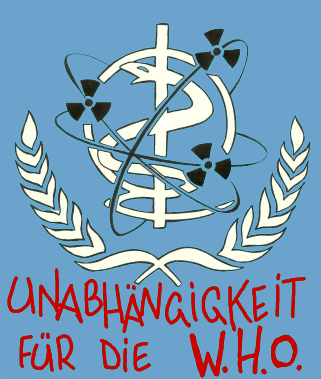Le Monde Diplomatique

Par Olivier Boiral
Professeur à l’université Laval (Canada)
Trente ans d'une institution secrète
Dirigeants des multinationales, gouvernants des pays riches et partisans du libéralisme économique ont vite compris qu’ils devaient se concerter s’ils voulaient imposer leur vision du monde. Dès juillet 1973, dans un monde alors bipolaire, David Rockefeller lance la Commission trilatérale, qui va marquer le point de départ de la guerre idéologique moderne. Moins médiatisée que le forum de Davos, elle demeure très active, au travers d’un réseau d’influences aux multiples ramifications.
Il y a trente ans, en juillet 1973, à l’initiative de M. David Rockefeller, figure de proue du capitalisme américain, naissait la Commission trilatérale. Cénacle de l’élite politique et économique internationale, ce club très fermé et toujours actif de hauts dirigeants a suscité nombre de controverses, surtout à ses débuts (1). La Commission entend alors devenir un organe privé de concertation et d’orientation de la politique internationale des pays de la triade (Etats-Unis, Europe, Japon). Sa charte fondatrice résume : « Centrée sur l’analyse des enjeux majeurs auxquels font face l’Amérique du Nord, l’Europe de l’Ouest et le Japon, la Commission s’attache à développer des propositions pratiques pour une action conjointe. Les membres de la Commission regroupent plus de 200 distingués citoyens provenant des trois régions et engagés dans différents domaines (2). »
La création de cette organisation opaque, où se côtoient à huis clos et à l’abri de toute compromission médiatique des dirigeants de multinationales, des banquiers, des hommes politiques, des experts de la politique internationale, ou encore des universitaires, coïncide à ce moment avec une période d’incertitude et de turbulence dans la politique mondiale. La gouvernance de l’économie internationale semble échapper aux élites des pays riches, les forces de gauche paraissent de plus en plus actives, en particulier en Europe, et l’interconnexion croissante des enjeux économiques appelle une coopération plus étroite entre les grandes puissances. La Trilatérale va rapidement s’imposer comme un des principaux instruments de cette concertation, soucieuse à la fois de protéger les intérêts des multinationales et d’« éclairer » par ses analyses les décisions des dirigeants politiques (3).
A l’image des rois philosophes de la cité platonicienne contemplant le monde des idées pour insuffler leur sagesse transcendante dans la gestion des affaires terrestres, l’élite rassemblée au sein de cette institution fort peu démocratique et que la démocratie inquiète dès lors que des groupes autrefois silencieux s’en mêlent va s’employer à définir les critères d’une « bonne gouvernance » internationale. Elle véhicule un idéal platonicien d’ordre et de supervision, assuré par une classe privilégiée de technocrates qui place son expertise et son expérience au-dessus des revendications profanes des simples citoyens : « Un lieu protégé, la Cité trilatérale, où la technè est loi, commente Gilbert Larochelle. Et, postées en surplomb, des sentinelles veillent, surveillent. Le recours à l’expertise ne relève point d’un luxe, il offre la possibilité de mettre la société face à elle-même. Le mieux-être ne vient que par les meilleurs qui, en leur hauteur inspirée, produisent des critères pour les relayer vers le bas (4). »
Les thèmes débattus au sein de cette oligarchie de la politique internationale, dont les réunions annuelles se déroulent en différentes villes de la Triade, le sont dans une discrétion qu’aucun média ne semble plus vouloir troubler. Chaque sujet fait l’objet de rapports annuels (The Trialogue) et de travaux thématiques (Triangle Papers) réalisés par des équipes d’experts américains, européens et japonais triés sur le volet. Edités régulièrement depuis une trentaine d’années, ces documents publics traduisent l’attention de la Trilatérale à des problèmes globaux censés transcender les souverainetés nationales et appeler l’intervention des pays riches : réforme des institutions internationales, mondialisation des marchés, environnement, finance internationale, libéralisation des économies, régionalisation des échanges, rapports Est-Ouest (surtout au début), endettement des pays pauvres, etc.
Ces interventions s’articulent autour de quelques idées fondatrices qui ont été largement relayées par le politique. La première est la nécessité d’un « nouvel ordre international ». Le cadre national serait trop étroit pour traiter des grands enjeux mondiaux dont la « complexité » et l’« interdépendance » sont sans cesse réaffirmées. Une telle analyse justifie et légitime les activités de la Commission, à la fois observatoire privilégié et contremaître de cette nouvelle architecture internationale.
Les attentats du 11 septembre 2001 ont fourni une nouvelle occasion de rappeler, lors de la rencontre de Washington en avril 2002, la nécessité d’un « ordre international » et d’« une réponse globale » auxquels les principaux dirigeants de la planète sont enjoints de collaborer sous la houlette américaine. Lors de cette réunion annuelle de la Trilatérale, MM. Colin Powell (secrétaire d’Etat américain), Donald Rumsfeld (secrétaire à la défense), Richard Cheney (vice-président) et Alan Greenspan (président de la Réserve fédérale) étaient présents (5).
La seconde idée fondatrice, qui découle de la première, est le rôle tutélaire des pays de la triade, en particulier des Etats-Unis, dans la réforme du système international. Les pays riches sont invités à s’exprimer d’une seule voix et à unir leurs efforts dans une mission destinée à promouvoir la « stabilité » de la planète grâce à la généralisation du modèle économique dominant. Les démocraties libérales sont le « centre vital » de l’économie, de la finance et de la technologie. Ce centre, les autres pays devront l’intégrer en acceptant le commandement qu’il s’est donné. L’unilatéralisme américain paraît cependant avoir mis à épreuve la cohésion des pays de la triade. Leurs dissensions s’expriment dans les débats de la Commission. Ainsi, dans son discours du 6 avril 2002, lors de la réunion évoquée plus haut, M. Colin Powell a défendu la position américaine sur les principaux points de discorde avec le reste du monde : refus de signer les accords de Kyoto, opposition à la création d’une cour pénale internationale, analyse de « l’axe du Mal », intervention américaine en Irak, appui à la politique israélienne, etc.
L’hégémonie des démocraties libérales conforte la foi dans les vertus de la mondialisation et de la libéralisation des économies qui s’exprime dans le discours de la trilatérale. La mondialisation financière et le développement des échanges internationaux seraient au service du progrès et de l’amélioration des conditions de vie du plus grand nombre. Or elles supposent la remise en cause des souverainetés nationales et la suppression des mesures protectionnistes. Ce credo néolibéral est souvent au centre des débats.
Lors de la rencontre annuelle d’avril 2003, à Séoul, il a été notamment question de l’intégration économique des pays d’Asie du Sud-Est et de la participation de la Chine à la dynamique de mondialisation. Les réunions des deux années précédentes avaient été l’occasion pour le directeur général de l’Organisation mondiale du commerce (OMC), M. Mike Moore, de professer dévotement les vertus du libre-échange. Après avoir vilipendé le mouvement antimondialisation, M. Moore avait même déclaré qu’il était « impératif de rappeler encore et toujours les preuves accablantes qui démontrent que le commerce international renforce la croissance économique (6) ».
La tirade du directeur de l’OMC contre les groupes réclamant une autre mondialisation qualifiés de « e-hippies » souligne la troisième caractéristique fondatrice de la Trilatérale : son aversion pour les mouvements populaires. Elle s’était exprimée dans le célèbre rapport de la Commission sur la gouvernance des démocraties rédigé par Michel Crozier, Samuel Huntington et Joji Watanuki (7). Dès 1975, ce texte dénonçait les « excès de la démocratie » qu’exprimaient aux yeux des auteurs les manifestations contestataires de l’époque. Celles qui, un peu comme aujourd’hui, mettaient en cause la politique étrangère des Etats-Unis (rôle de la CIA dans le putsch chilien, guerre du Vietnam, etc.) et réclamaient la reconnaissance de nouveaux droits sociaux. Ce rapport provoqua à l’époque nombre de commentaires indignés, qui dirigèrent leurs feux contre l’administration démocrate du président James Carter, qui fut membre de la Trilatérale (comme, plus tard, le président Clinton) (8).
Depuis le début des années 1980, l’attention de la presse pour ce genre d’institution semble s’être plutôt portée sur des rencontres moins fermées et surtout plus médiatisées, comme le forum de Davos. L’importance des enjeux débattus au sein de la Trilatérale et le niveau de ceux qui ont participé à ses réunions ces dernières années soulignent néanmoins son influence persistante (9).
Loin d’être un « vieux serpent de mer » qui referait surface au ravissement de quelques adeptes d’ésotérisme et de « théorie du complot », la Commission trilatérale est une institution bien établie, dont la discrétion facilite la collusion entre responsables politiques et grandes entreprises. « J’espère bien que les points de vue qui sont formulés par ces gens d’expérience ont une influence réelle sur la politique internationale ! », nous a répliqué un ancien ministre canadien qui a participé à plusieurs des travaux de la Commission trilatérale. Il faisait ainsi écho aux propos du fondateur, M. David Rockefeller : « Quelquefois, les idées mises en avant par les rapports de la Commission trilatérale sont devenues des politiques officielles. Ses recommandations ont toujours été sérieusement débattues à l’extérieur de notre cercle, et elles ont joué un rôle dans les réflexions des gouvernements et dans la formulation de leurs décisions (10). »
Ainsi se dessine la trame d’un pouvoir diffus, opaque, presque insaisissable, qui tisse ses liens à travers des clubs fermés et des rencontres internationales dont le forum de Davos représente l’expression la plus ostentatoire. Dans ces lieux de rencontres, d’échanges, de tractations gravitent les mêmes protagonistes, s’élaborent les analyses et les compromis qui précèdent souvent les grandes décisions. La Commission trilatérale est une des pièces de cet échiquier polymorphe. Elle consolide l’alliance entre le pouvoir des multinationales, de la finance et de la politique, grâce à un réseau d’influences dont les ramifications s’étendent aux principaux secteurs de la société.
(1) Le Monde diplomatique a consacré plusieurs articles au sujet dans les années 1970. Lire en particulier Claude Julien, « Les sociétés libérales victimes d’elles-mêmes », et Diana Johnstone, « Une stratégie trilatérale », respectivement mars 1976 et novembre 1976. Lire aussi l’article de Georges-Albert Astre, « Le nouveau capitalisme », in Manière de voir, n° 72, en vente le 15 novembre.
(2) Le nombre des « distingués citoyens » admis au sein de la Commission a été par la suite élargi et comprend aujourd’hui plus de 300 membres. MM. Raymond Barre, Thierry de Montbrial, Denis Kessler ont participé à ses travaux. M. de Montbrial est également membre du « Groupe Bilderberg ».
(3) Lire sur les réseaux de « décideurs » de ce genre, Geoffrey Guens, Tous pouvoirs confondus, EPO, Bruxelles, 2003.
(4) Gilbert Larochelle, L’Imaginaire technocratique, Boréal, Montréal, 1990, p. 279.
(5) Leurs discours, ainsi que de nombreuses autres informations, sont accessibles par le site de la Commission : http://www.trilateral.org/
(6) Mike Moore, The Multilateral Trading Regime Is a Force for Good : Defend It, Improve It, Réunion de la Commission trilatérale du 11 mars 2001.
(7) Michel Crozier, Samuel Huntington et Joji Watanuki, The Crisis of Democracy : Report on the Governability of Democracies to the Trilateral Commission, New York University Press, 1975.
(8) Zbigniew Brzezinski avait été l’un des grands architectes de cette organisation avant de devenir le principal conseiller du président Carter pour les questions de sécurité.
(9) On citera, par exemple, MM. William Clinton, George H. Bush, Henry Kissinger, George Soros, Valéry Giscard d’Estaing, Ernesto Zedillo, Mme Madeleine Albright. Mais, à ces responsables politiques, il convient d’ajouter de nombreux dirigeants en exercice des multinationales Exxon-Mobil, General Electric, Daimler-Chrysler, Levi Strauss, Kodak, Xerox, ABB, Johnson & Johnson, Alcan, Power Corporation, etc.
(10) David Rockefeller, Georges Berthoin et Takeshi Watanabe, préface aux Task Force Reports : 9-14, New York University Press, 1978, p. IX.
http://www.monde-diplomatique.fr/2003/11/BOIRAL/10677 - novembre 2003
En complément : http://www.mecanopolis.org/?p=7024





![Géopolitique : Union transatlantique, la grande menace, par Alain De Benoist [tribune libre] Géopolitique : Union transatlantique, la grande menace, par Alain De Benoist [tribune libre]](http://www.breizh-info.com/wp-content/uploads/2014/06/tafta.jpg)


